STARVATION MODE is a MYTH
If you are a sugar burner, your muscles rely on glucose for fuel. So if you deprive your body of glucose through fasting or caloric deficit, your body will run out of glucose at some point as it can only store about 2000 calories or so of glucose in your muscles and liver. The body then starts to cannibalize protein to make more sugar to fuel the body. This will lower your basal metabolic rate (BMR) which means you will need less calories to maintain. This can happen with sugar burners, but is not likely to be significant in those that are keto adapted and getting enough protein as this state spares muscle. You are no longer burning glucose for fuel. You are burning free fatty acids (FFA) and ketones!
The claims of starvation mode say that when you eat in a deficit for too long, your body starts to hold onto fat, even if you are eating in a deficit. So you could eat 500 calories and still not lose weight. This is a myth and isn’t true whether you are keto or not. The body doesn’t hold onto fuel like that. Your body will tap into fat stores whenever it needs more fuel.
So lowering your BMR can lower the number of calories you need to maintain. But that is why hitting your protein goal is so important. To makes sure you don’t lose lean mass. You can get good macros HERE.
WHY INTERMITTENT FASTING WORKS WITH KETO!
A ketogenic diet spares protein from being oxidized, which preserves muscle. This is why you do not go into “starvation mode.”
Branched-chain amino acids are considered essential because your body can’t make them, so you need to consume them for proper muscle building and repair (as well replenishing red blood cells). What I found so interesting is that BCAA oxidation rates usually rise with exercise, which means you need more if you are an athlete.
But in keto-adapted athletes, ketones and FFA are burned in place of BCAA. Your muscles will actual go though a change where they reject insulin (and as a result glucose) because they PREFER to burn ketones over glucose. So your muscle energy comes from ketones, not glucose. This can actually cause some people fasting blood sugar levels to temporarily rise when becoming keto adapted (called phsysiological insulin resistance). As your muscles reject glucose your blood levels rise since you muscles are no longer using it for fuel.
Critics of low-carb diets claim that you need insulin to grow muscles; however, in a well-designed low-carb, high-fat diet there is less protein oxidation and double the amount of fat oxidation, which leaves your muscles in place while all you burn is fat!
This is also why carb loading or carb days are not necessary. Your body and your muscles are no longer using glucose for fuel. You don’t need to replenish your carb store because you aren’t using them. You are using your fat stores for fuel. So your body can use dietary fat (Butter, animal fats, etc.) and body fat equally for fuel. Even the leanest of athletes will have over 20,000 calories stored in their fat cells. Carb loading will only set you back from your weight loss and healing goals.
Intermittent Fasting
Breakfast isn’t the most important meal of the day … “breaking your fast” is!
I remember when I first heard about “intermittent fasting.” I thought, no, no, no. This is not good for anyone who wants to maintain their muscle. But after diving into what happens when you fast on a well-formulated keto-adapted diet, I realized that not only do you maintain your muscle, but there are other amazing benefits as well. As I started putting this into practice, I not only experienced the physical benefits, but the mental benefits were outstanding! I now work and write early in the morning in a fasted state for about three hours and my mind has never been clearer.
Intermittent fasting came into my life almost by accident. Focusing on protien , not only was I losing weight, but I was no longer “hangry.” When you are eating the highest nutrient-dense foods like animal proteins, spices, organic egg yolks, and organic organ meat, your cells are satiated.
Intermittent Fasting is not a diet. It is a pattern of eating. You can eat very poorly while practicing intermittent fasting, a decision that will cause you to not reap as many benefits than if you were to eat a well-formulated keto-adapted diet. Fasting really isn’t as drastic as it sounds. When you sleep, you are starting to fast a little. During first 10 hours after eating, you are digesting and absorbing nutrients. It isn’t until after not  eating for 10 hours do you actually get into a fasted state. If you keep your window of eating open to only 8 hours of your day, then after 12 hours of not eating, you get into a fasted state where you can burn fat more efficiently.
eating for 10 hours do you actually get into a fasted state. If you keep your window of eating open to only 8 hours of your day, then after 12 hours of not eating, you get into a fasted state where you can burn fat more efficiently.
Intermittent fasting can be a great tool for making sure you keep within your macros and don’t over eat with mindless snacking. But Intermittent fasting is just a tool. Having bad macros with Intermittent fasting won’t give you the results you want. Getting macros right is still the most important thing for weight loss. But eating just two meals a day tends to come naturally for many transitioning to keto as you just aren’t as hungry all day. Also you only have to prep, cook and clean for only two meals instead of 3!
Read more about Intermittent Fasting and how it helps heal our bodies in Keto-Adapted.
Click HERE to get a limited edition Hard Cover.
Click HERE to get a soft cover.
Thank you all for your love and support!

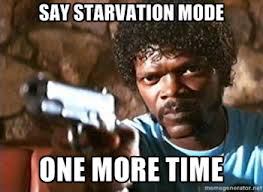










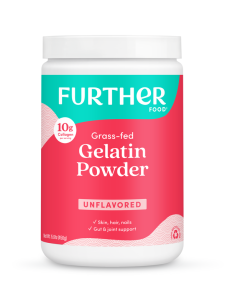

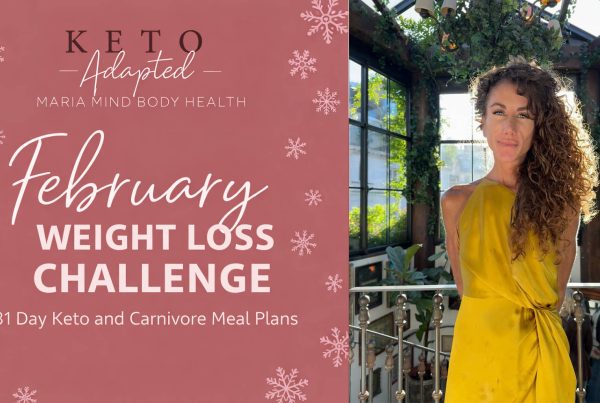
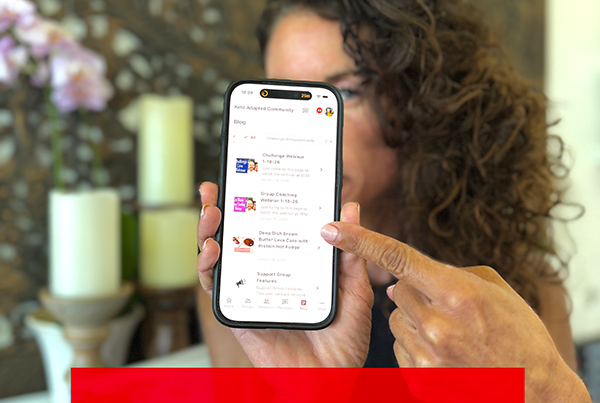
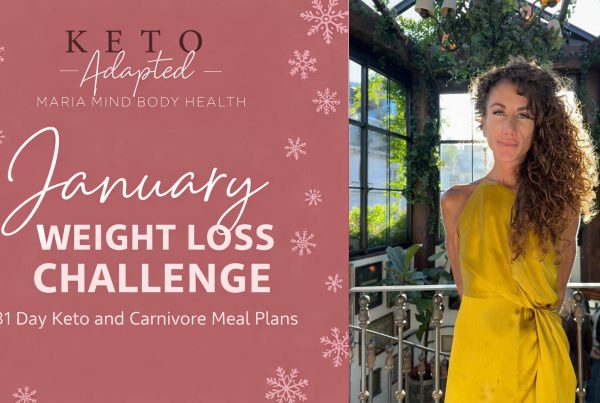
Ghrelin increases hunger. So how would increasing ghrelin reduce overeating?
That should read increase Ghrelin sensitivity. 🙂
“That should read increase Ghrelin sensitivity.”
Sensitivity to what? To being turned off by eating?
Hey Gretchen,
I took some time for research so that I could answer your question(which peaked my curiosity as well.)
While Ghrelin does increase apetite the important fact to remember is that it’s a hormonal response meant to trigger feelings of hunger, in-turn causing you to eat. Intermittent fasting helps break through energy homeostasis and increases certain mental functions due to increased levels of Ghrelin.
What does this mean? It means that hunger is more often than not a hormonal response which can be triggered from numerous stimulus and is known to coincide with your internal clock, meaning that you’re likely going to get ‘hungry’ and ‘need to refuel’ roughly the same times everyday.
More or less I can’t exactly conclude that increases in Ghrelin decreases feelings of hunger. I simply know that certainly works in my situation and I’m simply not hungry before noon.
Oh – another benefit of IF and understanding how Ghrelin works is the ability to begin determining if you’re HUNGRY or THIRSTY because the body reacts in similar fashion for these different needs. I’ve noticed that I have been able to determine which need my body has since starting IF over a year ago.
Hope this helps(and sorry I couldn’t give a direct answer to your question,)
Shawn Michael Hartwell
Actually, looking over my notes again that should say leptin. It increases leptin which reduces over eating. The person who made the chart got the signals crossed when I told them what I wanted. 🙂 I will fix the chart this week.
it was not until I read this book that I really understood the keto life style – and I mean I read the book 15 times in order to understand as it is so different that we have been “sold” for our entire lives. I now reject the SAD diet I couldn’t believe what they gave my husband for food while he was in the hospital, huge slice of wheat bread with I can’t believe it’s not butter, low fat milk, breaded fried chicken, canned fruit ,soggy veggies then they asked if he had a problem with high sugar count–what???
I recommend get the book
Thanks!
I have read Keto Adapted several times myself. I am still trying to wrap my head around the abundance of information. I have been in Ketosis for about 2 weeks in earnest, now. I am checking my blood ketone levels and even tried a 24 hr fast… my ketone levels after the fast were 5.8!!! I thought, “WOW! This really works!” LOL…
Awesome! Thanks!
Thanks for this article. Perfect timing I’d been doing keto again in May (since having fallen off the wagon), and my weight had been plummeting just like before. Then I got stuck, and weight loss stops or slows to a very slow crawl. I had been doing intermittent fasting where I don’t eat till noon or after and finish supper by 8 p.m. I wondered if I had been eating too few calories and caused my weight loss to stall? (But I just don’t get hungry when doing intermittent fasting.) So I started eating more. I prefer the intermittent fasting schedule. I feel so much better. I find if I eat earlier in the day I am often hungrier all day. When I was in my twenties (late 50s now) I never ate before lunch and was always thin. If I stick with the intermittent fasting, is it likely my weight loss will restart again? I’d still like to lose about 40 lbs. so it’s not like I am close to goal and slowing down. Thanks in advance for any ideas from anyone. 🙂
Yes, that would be the best plan. Weight loss isn’t a straight line. Sometimes you just have to ride out a stretch as your body heals. 🙂
Thank you, Maria!
I tried intermittent fasting for a while, but instead of not eating in the evening, I was not eating in the morning. Meaning, I limited my eating hours from 1:00 p.m. to 7:00 p.m. I have since read that skipping breakfast can cause health issues (I think heart disease was one mentioned). I realize that “convention wisdom” often is outdated or outright wrong, so I try hard to watch the sources where I get my information. I don’t want to give up supper (that’s when our family sits down together) in order to do intermittent fasting, but am interested in getting the benefits of it. Can you comment on any risk associated with waiting to eat (fasting) until the afternoon? I find it very easy to fast from 7:00 p.m. to 1:00 p.m. the next day (I’m busy in the morning anyway), but don’t want to harm my body.
Fasting in morning or evening or both are all great options. 🙂
Maria,
How much time between the photo you posted on 08-25-15 with Muscle & Fitness magazine and the photos in the “About Me” section (sitting in front of brick wall wearing sweater and with your son in field)? Muscle definition and slimness in your face is so evident. As with all of us, I’m sure your diet, fasting, and exercise routine has evolved over time. The photos appear to show that you are anti-aging and not aging!
Awe, thanks! 🙂
Nice graphic–when are we going to see a pork and fish chart like the beef chart you did earlier? I’m still waiting for them, and have the beef chart saved on my hard drive to print out and use for shopping.
My husband is a nurse and he’s still not convinced that the state of ketosis is healthy. I have your Keto-Adaped book, but haven’t figured out a simple way of telling him the benefits. He’s worried about me messing up my kidneys. What and how do I tell him?
Thank you
Hey Kat,
I feel you on this front! Most of reddit’s Keto community would. There is always new posts on this problem popping up and they all receive the same response:
Let the results and research speak for themselves.
In most cases whatever you say won’t be enough to convince someone that any lifestyle is healthy. What you can do is prove the validity of your chosen lifestyle by living it and being proof of the results, getting regular bloog work done to confirm you’re healthier and by educating through the use of scientific studies.
Luckily I have a supportive SO and I certainly things change for you.
Best,
Shawn Michael Hartwell
There is also a bunch of new researching being developed that should help.
http://nusi.org/
This lifestyle is moderate protein so no more load on kidneys that typical diets. 🙂
I agree completely Maria!
Thanks!
I’ve been an RN for 20 years and I preach it to patients. Granted I don’t utilize it exactly like Maria, or for all patients. But I don’t worry about the safety of ketosis in patients without underlying issues that may not be suited for it.
😉
I love the fact that I’m not hangry either and can fast for hours. Wonderful feeling that I finally eat to live and not live to eat.
Request: Could you please post a conversion chart of sweeteners (Swerve) to sugar?
I have a conversion chart in my cookbooks. 🙂
So when you become catabolic that is starvation mode?
Yes.
Question: Have you seen any reliable research that addresses the long-term effects of intermittent fasting *on women*???
I have read several things where women are mentioned, but the study itself was on IF and most of the subjects were men. The women in the study did not show any benefit from IF when compared with women in the control group using LCHF without IF.
I am intrigued by IF but want to see more research targeting the benefits for women. If I am going to fast for the major part of my day, I want to be certain it will benefit me the way it is supposed to.
Thanks, Maria!
There isn’t enough research in this area. But I have lots of anecdotal evidence from clients including myself (I have IF everyday for a few years now as Craig has too). 🙂
so today is the fourth day I’m fasting in the morning, and
i’ve just been having tea or water until about 12:30, then I eat.
About how many days does it take for your body to get used to it, because I still feel hungry in the morning, and twice have felt nauseus for a couple of minutes. It went away pretty quickly, but I don’t want to be hurting myself…
This can depend on how ketogenic your diet is. The more fat in your intake (and less carbs) the easier it will be. 🙂
Hey Audrey,
Believe it or not I suffered that way for the first week. The key is pushing through the initial adjustment period. I have to force myself to eat sometimes!
I can assure you that no harm will come to your body from proper IF protocol. Your body is used to having a steady stream of food to digest and has become Dependant on that fuel and the specific times of the day you eat.
Can you eat two meals in the eating window? Also, if fasting in the afternoon, does having tea in the morning break the fast? Are there some drinks you can have while fasting?
Hey Cici,
There are different methods to fasting dependant on what ‘protocal’ you are following. Some people preach liquid-only fasts while others preach that zero-calorie/carb/sugar/anything foods are okay(like sugar free jello!)
Tea(plain) in the morning, Coffee(black) in the morning or Water in the morning won’t cause you to break your fast. This is because none of those things will trigger your digestive system.
In fact you should be drinking while fasting because you risk doing damage to your body if you don’t replenish your fluids. Essentially there is no such thing as a straight-up ‘fast’ by the definition of taking in NOTHING.
Best,
Shawn Michael Hartwell
Yes, 2 meals and as much food as you need can be eating in the window. As long as it is less than about 50 calories (outside the eating window) it won’t break your fast. 🙂
Hi Maria,
This is a great post! I would really like to try IF again. Lately I just feel out of control and have been overeating (all Keto food though)! I’d like to get a handle on my eating habits again. The only question I have is in regards to the supplements you recommended in the depression/anxiety supplement plan. I have noticed that if I do not eat at least 300-400 calories worth of food that I get extremely nauseous to the point of throwing up if I take them on an empty stomach or with little food in my stomach. These supplements include l-carnitine, l-glutamine, l-tyrosine, my probiotic, a multivitamin, biotin, evening primrose oil, and potassium. Can I just take these at night after a meal? I would really appreciate any advice!
Thank you!
Hi, yes, for those plans if you are IF and it says taking 3 times a day with meals, just take two times a day with each meal in fasting window. 🙂
Okay thank you so much!
Have you heard of ferritin levels reducing due to inflammation reduction? I have been taking iron due to low ferritin and after 3 mos, restested. It’s half what it was and it was too low to begin with! The practitioner says just keep taking the iron another 3 mos; it’s lowered becuz your inflammation is reducing. I have never heard of this and figured my wgt stall was due to low ferritin. Now it’s EVEN LOWER… 🙁
If you feel low in energy and weight loss stalls and your ferritin is below 50, then I would add a supplement. 🙂
Ive been taking iron for 3 mos and now my ferritin is half what it was…???
Believe me it wasnt elevated. It was 29 and now 16.
In that case it could be low thyroid or low hydrochloric acid inhibiting absorption.
Hi Maria,
I very much appreciate and enjoy your writings. I couldn’t find a good spot to ask this question so I will ask it here. I’ve been following a ketogenic diet for about 6 weeks now and have seen a positive impact in my general health. I’m a science nerd and enjoy having data to track progress so I’m measuring blood ketone levels and will have some blood work done to check other markers too.
I was wondering about the long term sustainability of a ketogenic diet – potential impact if you ramp up the carb or protein content after being ketogenic for 3 months, 6 months etc. and also whether this is appropriate for pediatrics. Everything that I had read would make me thing that in ‘normal’ people, including children, this way of eating would be fine then I came across this summary (http://www.thepaleomom.com/wp-content/uploads/2015/05/Ketogenic-Diet-Literature-Review.pdf) that presents the risks associated with a ketogenic diet. Many of the adverse reactions appear to me to be within the pediatric population.
I wondered whether you had any thoughts about being in ketosis for the long term, ketosis of kids and Sarah Ballantyne’s position piece given your real world experience of working with 100s of clients.
Thanks again for all the work that you do.
Best wishes,
Andy
Her article is really outdated and not very accurate. Most “studies” cited were flawed. Run for only few days (when keto adaption takes 2-4 weeks) or the Keto group has 100g carbs. Here is my response to that post:
http://mariamindbodyhealth.com/8-common-misconceptions-about-ketogenic-diets/
This was very useful. Felt like scaremongering and I knew that you must have something instructive.
Many thanks!
Thanks!
Great article; I like how simple it’s laid out. One minor nitpick for whoever made the graphic “Example Shedule” should be “Example Schedule.”
Thank you!
You have mentioned “we’ll formulated ketogenic diet” in your posts. How do I know if my diet is well formulated? What is the formula?
I write all about how to do Keto “well formulated” in my book Keto Adapted;)
When do you recommend taking Keto OS when applying Intermittent Fasing Schedule?
I would wait to take it until you get hungry then fast longer. It drastically reduces hunger;)
Thank you Maria.
I fast around 15 -15 1/2 hours everyday now. I do 7pm to 10-10:30 am. 2 meals a day seems to be what my body needs.
Hi Maria, Do you write about longer fasts anywhere? It seems as though I am insulin resistant and my functional med dr has me on a 3-5 day fast outlined in Dr. Karrazian’s thyroid book. I’m the 3rd day in and still sitting at the low 100’s for blood sugar levels and beginning to wonder about how this fits with the keto world. His (both dr and writer) seem to say to do this until your bsl drops to about 65 then stop, go back to eating healthy, and repeat every 4-6 weeks for up to 6 times. I look at it as a process with becoming keto adapted. As you know I’ve worked with you for a couple of years and my body responded well the first few weeks but not long after that. I still had cravings despite all the products you recommended at that time (I do have Lyme as well which helps complicate things as you know, too). I wanted to over-eat, always tired, etc. I do have low free t3 and my recent adrenal testing displays hypo adrenal functioning as well. So, I’m working on that in hopes of my thyroid catching up. I eat so so clean (and have cut out the mj food sensitivity groups as well as sticking to HFLC), have for years, and really wish I could find a happy place (weight is good, mood is stable, bloodwork is good, no cravings, etc.). I want this to be less work, less of a battle and when I was reading about insulin resistance I began wondering if that is one of my underlying issues. So, with this, obviously IF is important, but what about these longer fasts? Thoughts?
Oh, and with the fasts in Dr. K’s book I am only doing a little lemon or lime, no maple syrup.
I love long fasts but I don’t have posts on it here. Sorry.